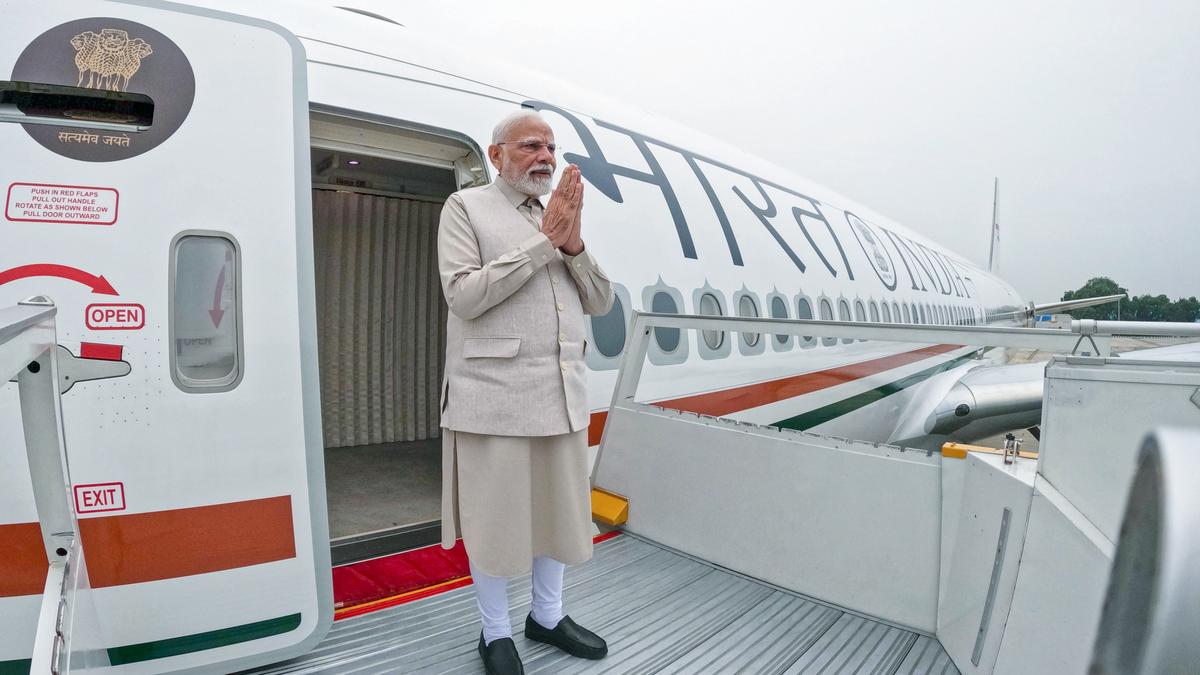Now Reading: India, UK to Finalize Free Trade Agreement on July 24 in London
-
01
India, UK to Finalize Free Trade Agreement on July 24 in London
India, UK to Finalize Free Trade Agreement on July 24 in London

Swift summary
- India-UK Free Trade Agreement (FTA): India and the UK to sign a complete economic and trade agreement in London on July 24, 2025.
- Key Provisions:
– Concessions for Indian labor-intensive exports, including leather, garments, and footwear.
– Reduction of import duties for British goods such as whisky (150% to 40% over ten years), cars (from over 100% to 10% under a quota), cosmetics, aerospace items, medical devices, and more.
- Trade Goals: aims to double bilateral trade between the two nations to $120 billion by 2030.
- Services Mobility: Facilitates mobility for professionals like yoga instructors, corporate transferees with families allowed work rights in both countries.
- Social Security Pact Concluded: To address double contributions for Indian professionals working temporarily in the UK.
- Bilateral Trade Data:
– India’s exports to the UK grew by 12.6%, reaching $14.5 billion in FY2024-25.
– Bilateral trade increased from $20.36 billion in FY2022-23 to $21.34 billion in FY2023-24.
Indian Opinion Analysis
The signing of this Free Trade Agreement marks a milestone in strengthening economic ties between two significant global economies with past connections. The phased reduction of tariffs on goods such as British whisky and Indian textiles indicates robust negotiations focused on mutual market access while addressing sensitivities around domestic industries.
The elimination of duties on nearly all Indian exports into the UK may substantially boost sectors reliant on international demand-helping expand labor-intensive industries like textiles and footwear domestically while creating jobs across value chains.
On social integration matters addressed through professional mobility clauses and social security agreements-this sets an encouraging precedent toward removing bureaucratic bottlenecks linked skilled migration treaties globally .
However— Parliamentary ratification journey
























